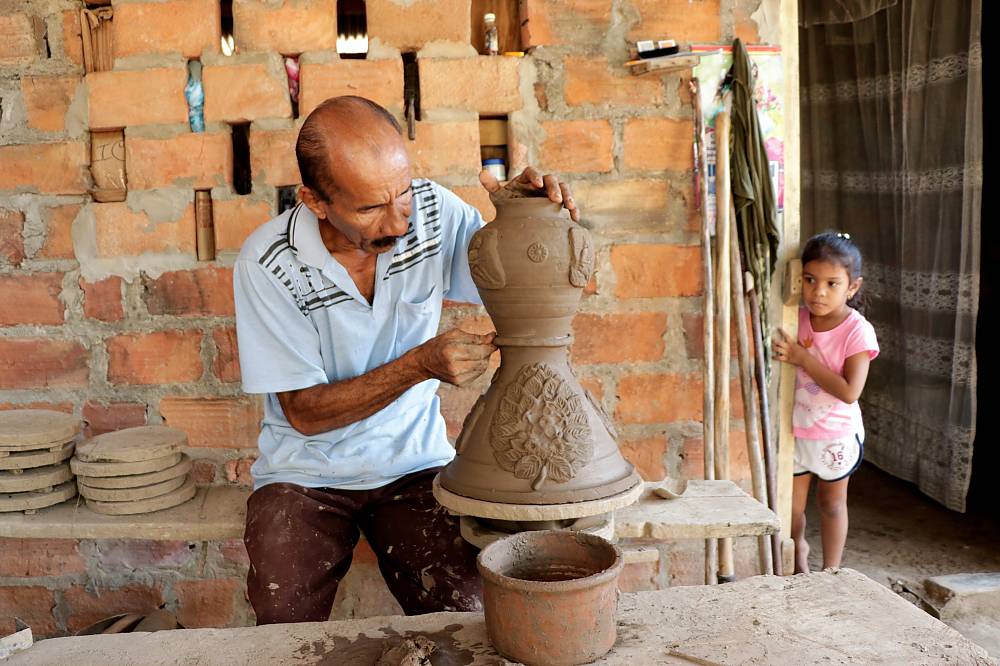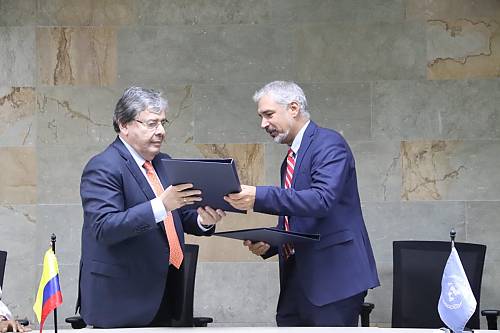Additions to the Register of Good Safeguarding Practices:
The safeguarding strategy of traditional crafts for peace building addresses the weakening of traditional crafts through a system of intergenerational transmission of knowledge between a master and apprentice based on the ‘learning by doing’ method. Training is combined with work, guaranteeing apprentices’ future employability. The strategy thus aims to train different sectors of the population, establish labour connections and foster entrepreneurship, giving priority to apprentices in situations of vulnerability. It also helps communities recognize the cultural and societal value of safeguarding different traditional skills and crafts.
The activities associated with the biocultural programme for safeguarding the tradition of the Blessed Palm in Venezuela involve the gathering of several palm species in a specific mountain chain. After attending a religious ceremony, the ‘palmeros’ climb the mountain where they undertake various activities, including planting and pruning palm trees. Thirty years ago, the tradition appeared threatened by deforestation but the palmeros have modified the way the palm trees are collected and initiated a series of innovative educational measures. The programme has encouraged hundreds of children and young people to get involved.
The Register of Good Safeguarding Practices allows States Parties, communities and other stakeholders to share successful safeguarding experiences and examples of how they surmounted challenges faced in the transmission of their living heritage, its practice and knowledge to the future generation. These methods and approaches should be useful as lessons and models that can be adapted to other circumstances, including those in developing countries.
- International assistance of US$387,770 from the Intangible Cultural Heritage Fund granted to:
Capacity building for stakeholders involved in safeguarding the intangible cultural heritage in Burkina Faso
A 24-month project in Burkina Faso which aims at building the capacities of stakeholders involved in safeguarding intangible cultural heritage in Burkina Faso. To be conducted in two stages, the project is directed at a process of training trainers, which is expected to lead to the establishment of a team of ten national facilitators who will train 225 local stakeholders. These stakeholders are then expected to work with their communities to safeguard living heritage at the local level and help ensure its effective sustainability.
Meeting:
-
14th session of the Intergovernmental Committee (9 December 2019 – 14 December 2019)




